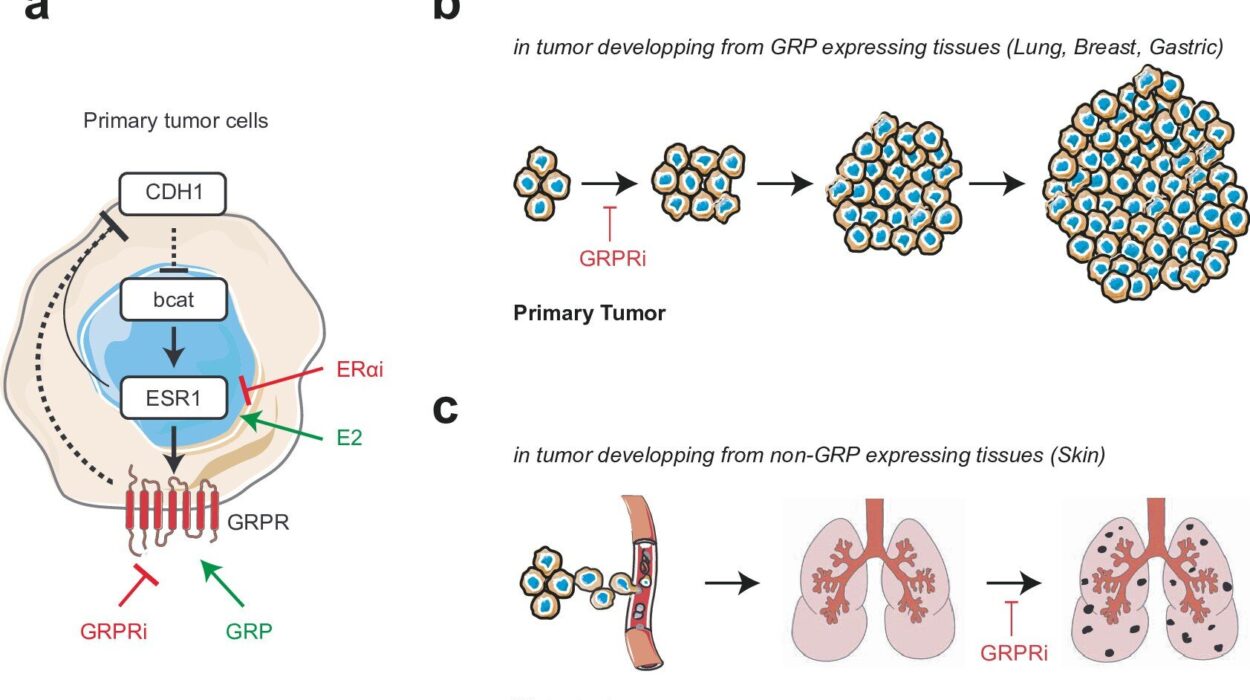The human body is built with astonishing defense systems, designed to shield us from invading bacteria, viruses, and other harmful substances. This defense system—the immune system—is often compared to a well-trained army, equipped to recognize what belongs to us and what doesn’t. But in autoimmune diseases, this army makes a tragic mistake. It begins to see the body itself as an enemy and turns its weapons inward, attacking healthy tissues and organs.
For millions of women worldwide, this internal battle is not visible on the surface, yet it is profoundly life-changing. Autoimmune diseases can cause fatigue that makes getting out of bed feel like climbing a mountain, pain that lingers for days, or symptoms that fluctuate unpredictably. What makes these conditions even more striking is that they disproportionately affect women. Nearly 80% of all autoimmune cases occur in women, and many develop during childbearing years, when life’s demands are often at their highest.
To understand autoimmune diseases in women is to look beyond statistics and diagnoses. It is to explore the daily realities of resilience, the science of why women are more affected, and the strategies for living well despite these challenges.
Why Women Are More Affected
The question of why autoimmune diseases strike women more often than men has fascinated scientists for decades. The answer is complex and multifaceted, involving genetics, hormones, and immune system differences.
Estrogen, a hormone that plays a central role in the female reproductive system, also influences immune activity. While estrogen can enhance immune responses, this heightened vigilance may sometimes go too far, tipping the system into overactivity that leads to autoimmunity.
Genetics also plays a role. Certain genes associated with immune regulation are located on the X chromosome, and women have two copies of this chromosome compared to men’s one. This double dose may increase susceptibility to immune dysfunction.
Environmental factors cannot be ignored either. Stress, infections, smoking, and exposure to toxins can all act as triggers in those who are already genetically predisposed. When these factors combine with hormonal and genetic influences, the risk of autoimmune disease rises sharply for women.
The Spectrum of Autoimmune Diseases in Women
Autoimmune diseases are not a single condition but a vast family of disorders, each affecting different parts of the body. While over 80 autoimmune diseases have been identified, several are especially common in women.
Rheumatoid Arthritis
Rheumatoid arthritis (RA) is one of the most well-known autoimmune diseases. Unlike osteoarthritis, which results from wear and tear, RA arises when the immune system attacks the joints, causing inflammation, swelling, and eventually joint damage. Women are three times more likely than men to develop RA, often during their 30s and 40s.
The pain and stiffness of RA can make simple tasks—buttoning a shirt, opening a jar—feel daunting. Yet with treatment, including medications that control immune activity and lifestyle adaptations, many women continue to lead active, fulfilling lives.
Systemic Lupus Erythematosus
Often simply called lupus, systemic lupus erythematosus (SLE) is a complex condition that can affect almost any organ in the body. Its symptoms vary widely, from joint pain and fatigue to skin rashes and kidney complications.
Lupus is sometimes referred to as a “disease of a thousand faces” because of its unpredictable and diverse manifestations. Nine out of ten people diagnosed with lupus are women, most between the ages of 15 and 45. For many, lupus is a lifelong condition requiring careful monitoring and management.
Multiple Sclerosis
Multiple sclerosis (MS) affects the central nervous system, disrupting communication between the brain and body. Symptoms can include numbness, vision problems, balance issues, and muscle weakness.
Women are up to three times more likely than men to develop MS. While the disease course can vary, advances in treatment have made it possible to slow its progression, reduce relapses, and help women maintain independence for much longer than in the past.
Hashimoto’s Thyroiditis and Graves’ Disease
The thyroid gland, a small organ at the base of the neck, plays a huge role in regulating metabolism. Autoimmune thyroid diseases are particularly common among women.
Hashimoto’s thyroiditis causes the immune system to attack the thyroid, leading to hypothyroidism—a slowing of body functions that results in fatigue, weight gain, and depression. On the other hand, Graves’ disease causes the thyroid to become overactive, triggering symptoms such as anxiety, rapid heartbeat, and weight loss. Both conditions require careful management, often with lifelong medication.
Type 1 Diabetes
Though often diagnosed in childhood, type 1 diabetes is an autoimmune condition that can also appear in adults. The immune system attacks insulin-producing cells in the pancreas, leaving the body unable to regulate blood sugar without insulin therapy.
While both sexes can develop type 1 diabetes, women face unique challenges, particularly related to pregnancy and hormonal fluctuations, which can complicate blood sugar control.
Psoriasis and Psoriatic Arthritis
Psoriasis is more than a skin condition—it is an autoimmune disease where immune overactivity speeds up skin cell production, leading to thick, scaly patches. About a third of people with psoriasis also develop psoriatic arthritis, which causes joint inflammation similar to rheumatoid arthritis.
Though psoriasis affects both men and women, women often report greater impact on quality of life, possibly due to social pressures and body image concerns.
Inflammatory Bowel Diseases
Crohn’s disease and ulcerative colitis are autoimmune conditions affecting the digestive tract. They cause abdominal pain, diarrhea, fatigue, and sometimes malnutrition. Women may face added difficulties during menstruation, pregnancy, or menopause, as hormonal changes can influence disease activity.
The Daily Realities of Living with Autoimmune Disease
For women with autoimmune conditions, the journey is often one of adjustment and resilience. Many of these diseases are chronic, meaning they persist throughout life, with periods of flare-ups and remissions.
One of the most common challenges is fatigue. This is not ordinary tiredness but an overwhelming exhaustion that can interfere with work, family, and social life. Pain, too, can be relentless, sometimes invisible to others, which may lead to misunderstanding or stigma.
Beyond the physical symptoms, autoimmune diseases often carry emotional and psychological burdens. Anxiety about flare-ups, uncertainty about the future, and the pressure of long-term treatment can take a toll. Women may also face additional challenges balancing illness with caregiving roles, careers, and personal relationships.
Diagnosis: A Long and Winding Road
One of the frustrating aspects of autoimmune diseases is how difficult they can be to diagnose. Symptoms often overlap with other conditions, and many are vague, such as fatigue, joint pain, or headaches. Women sometimes wait years for a definitive diagnosis, enduring uncertainty and frustration in the process.
Diagnostic tests may include blood work to check for specific antibodies, imaging studies to look for inflammation or damage, and careful clinical evaluations. Even with these tools, diagnosis is rarely straightforward, requiring persistence and collaboration between patients and healthcare providers.
Treatment Approaches
There is no universal cure for autoimmune diseases, but treatments can control symptoms, reduce inflammation, and prevent long-term damage. Common approaches include:
- Medications such as corticosteroids, disease-modifying antirheumatic drugs (DMARDs), and biologics that target specific immune pathways.
- Lifestyle changes including stress management, exercise adapted to ability, and balanced nutrition.
- Monitoring to detect complications early, especially in diseases that affect multiple organs.
The goal of treatment is not only to manage disease activity but also to preserve quality of life, enabling women to pursue their goals and dreams despite chronic illness.
Care Tips for Women Living with Autoimmune Diseases
Managing an autoimmune disease often requires a holistic approach, combining medical treatment with self-care practices that support the body and mind.
Prioritizing Rest and Energy Management
Pacing is crucial. Women with autoimmune diseases often learn to listen to their bodies and balance activity with rest. Techniques such as energy budgeting—allocating energy to the most important tasks—can help reduce exhaustion and prevent flare-ups.
Nutrition and Gut Health
While no single diet can cure autoimmune diseases, nutrition plays an important role in overall health. A diet rich in fruits, vegetables, lean proteins, and healthy fats supports immune function. For some women, avoiding processed foods or identifying trigger foods can reduce symptom flare-ups, particularly in conditions like inflammatory bowel disease.
Stress Reduction
Stress is a known trigger for autoimmune flares. Practices such as mindfulness meditation, yoga, breathing exercises, and journaling can reduce stress and improve emotional well-being. Emotional support from therapy or support groups can also be invaluable.
Staying Physically Active
Gentle exercise—such as walking, swimming, or stretching—can reduce stiffness, strengthen muscles, and boost mood. Exercise should always be tailored to one’s condition and tolerance.
Building a Support System
Living with a chronic condition is easier with support. Family, friends, and support groups can provide encouragement and understanding. Sharing experiences with others who face similar challenges often helps reduce feelings of isolation.
Communication with Healthcare Providers
Women with autoimmune diseases benefit from building strong relationships with their healthcare teams. Open communication ensures treatment plans remain effective and responsive to changing needs. Keeping a symptom journal can help track patterns and provide valuable insights during appointments.
Autoimmune Diseases and Reproductive Health
Autoimmune diseases often intersect with women’s reproductive health. Some conditions flare during pregnancy, while others may improve temporarily. Medications may need adjustment to protect both mother and child. Fertility, menstruation, and menopause can also influence disease activity.
Women considering pregnancy while managing an autoimmune condition should work closely with healthcare providers to plan safely. With careful monitoring and support, many women successfully navigate pregnancy and motherhood despite autoimmune challenges.
The Emotional Journey
The physical impact of autoimmune disease is significant, but the emotional journey is just as profound. Living with a condition that has no cure, that flares unpredictably, and that others may not fully understand requires resilience. Women often describe learning to adapt, redefining their sense of normal, and finding strength they did not know they possessed.
This emotional resilience is not about denying hardship but about acknowledging it while still seeking joy and meaning. Many women find empowerment in advocacy, research participation, or supporting others with similar conditions. Their voices bring visibility to diseases that are often hidden and misunderstood.
Research and the Future of Autoimmune Care
Research into autoimmune diseases is rapidly advancing. Scientists are exploring the role of gut microbiota, the impact of environmental toxins, and the potential for precision medicine that tailors treatment to individual genetic profiles.
New therapies, including biologics and gene-editing technologies like CRISPR, hold promise for more targeted and effective treatments with fewer side effects. The dream of a cure remains, but even short of that, the goal is to transform autoimmune diseases from life-limiting conditions into manageable aspects of life.
Conclusion: Strength in the Midst of Challenge
Autoimmune diseases in women are more than medical diagnoses—they are daily realities that test endurance, courage, and adaptability. They remind us of the delicate balance of the immune system and the resilience of the human spirit.
To live with an autoimmune disease is to navigate uncertainty, yet it is also to cultivate strength. With accurate information, effective treatment, and compassionate support, women facing these conditions can not only survive but thrive.
Biology may explain why autoimmune diseases strike, but the stories of women living with them reveal something deeper: that life, even when challenged, is fiercely determined to go on. Autoimmune diseases may alter the path, but they do not define the destination. Women continue to dream, love, create, and contribute, carrying forward the truth that resilience is itself a form of healing.






